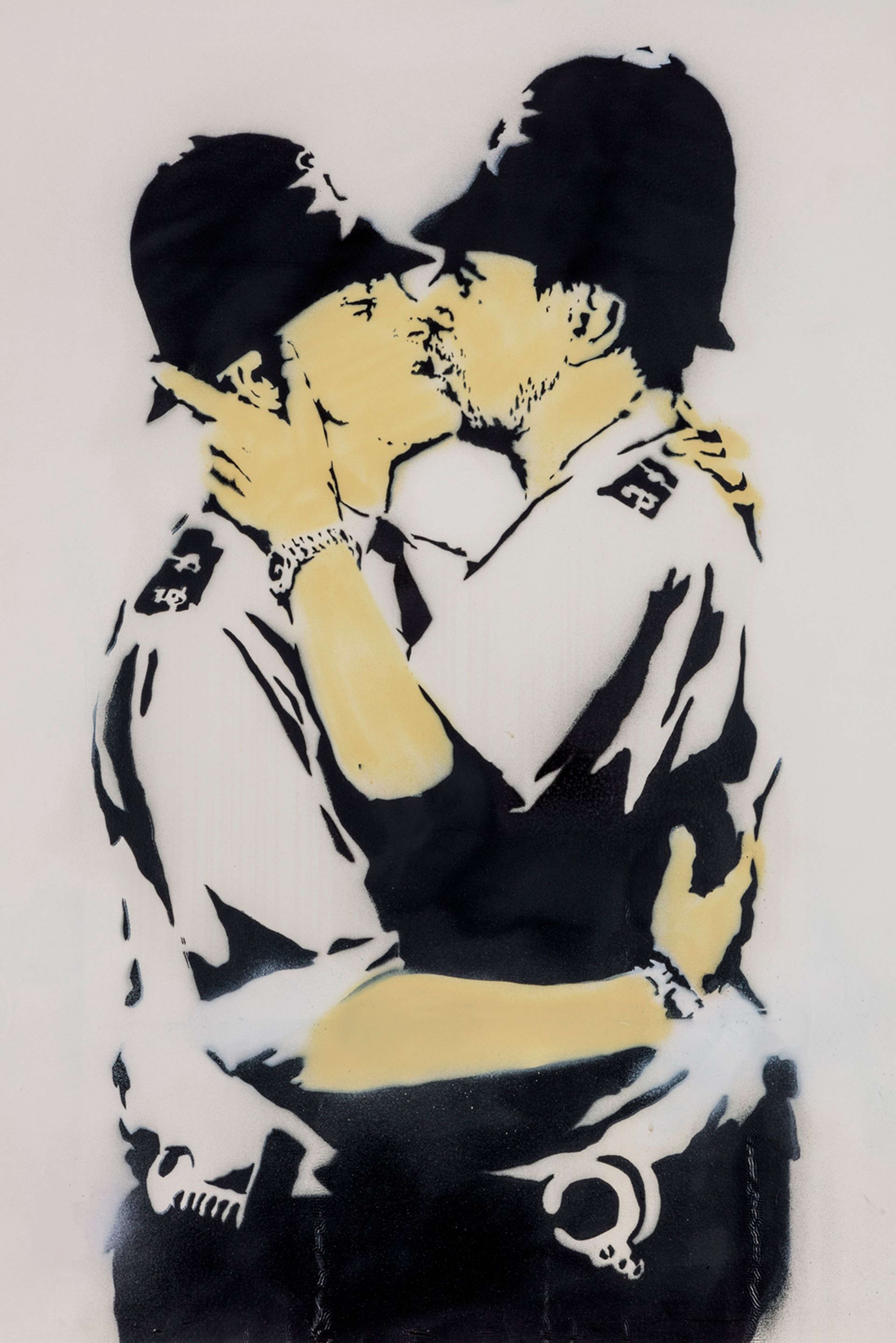Elton John: Photography Collector

 Image © EltonJohn.com / Elton John in his house, surrounded by some of his photographs
Image © EltonJohn.com / Elton John in his house, surrounded by some of his photographsMarket Reports
Elton John began collecting photographs in 1991, following a long struggle with sobriety. His is now regarded as one of the leading private photography collections in the world, possessing over 7,000 images by eminent photographers such as Nan Goldin, Cindy Sherman, Annie Leibovitz, Irving Penn, Cecil Beaton, Lord Snowdon, and Man Ray. John adorns his numerous homes with these photographs, living amidst them. Marked by an innate sense of wonder and delight, this extensive collection reflects the distinct personality of its collector, who opts to incorporate these artworks into his daily living environments rather than confining them to a vault.
The Genesis of a Collection: Elton John's First Steps into Photography Collecting
John's foray into photography collecting began during a moment of personal transformation, when his journey into sobriety became intertwined with the discovery of a new passion. In 1991 in a chateau in the south of France, David Fahey (owner of a prestigious gallery in Los Angeles) introduced John to the works of Herb Ritts, Horst P. Horst, and Penn. The encounter was transformative, as John found himself enamoured with the medium of photography, captivated by the power of images to convey depth, emotion and perspective. This initial exposure sparked a relentless pursuit of photographic works that resonated with him on a deeply personal level.
His approach to collecting photography is guided not by the market value of the works, but by a more intuitive and emotional connection. Whether it comes to vintage prints, avant-garde fashion photography, or groundbreaking contemporary images, the common thread among the pieces he selects is their ability to speak to his emotions and inner psyche. John's collection, now renowned for its breadth and depth, mirrors the eclectic and diverse nature of his musical career, embracing a wide range of styles and periods.
The collection has grown to be one of the most significant private photography collections worldwide, celebrated for both its curatorial depth and the unique story of its collector. John's early steps into collecting have since evolved into a profound legacy, offering insight into the capacity of photography to capture and convey the complexities of the human experience. Through his collection, John underscores the importance of emotional resonance over monetary value, highlighting the intimate and often personal dialogue between collector and artwork.
 Image © Public Domain / Migrant Mother © Dorothea Lange 1936
Image © Public Domain / Migrant Mother © Dorothea Lange 1936Highlights of the Collection
John's collection is a testament to the breadth and depth of photographic art, encompassing a range of genres from portraiture to documentary photography. Among the highlights are:
Dorothea Lange's Migrant Mother (1936)
One of the most evocative images within John's collection, this poignant photograph was taken during the Great Depression and captures the essence of struggle, resilience, and the maternal instinct to protect and persevere in the face of adversity. Lange's ability to convey such powerful emotion and narrative in a single frame is a testament to her mastery of the medium and underscores the photograph's iconic status in American history. It is also in the collection of institutions such as the Smithsonian and the Museum of Modern Art in New York City.
Man Ray's Glass Tears (1932)
A hallmark of Surrealist photography, encapsulating the movement's exploration of dreamlike scenarios and the unconscious mind, this photograph features a close-up of a woman's face adorned with glass beads resembling tears. Man Ray's innovative techniques and his ability to imbue objects with layered meanings make this work a pivotal piece in John's collection, and a copy of the photograph is also housed at the Getty Museum in Los Angeles.
Richard Drew's The Falling Man (2001)
This photograph is one of the most haunting reminders of the tragic events of September 11, 2001. Capturing a man's fall from the World Trade Center, the image is a powerful document of the day's harrowing circumstances. Its inclusion in John's collection highlights the collector's commitment to preserving significant historical moments through photography, regardless of their emotional weight.
 Image © V&A / Underwater Swimmer © André Kertész 1917
Image © V&A / Underwater Swimmer © André Kertész 1917Cindy Sherman's Untitled Film Still Series (1977-1980)
In an interview, John talks about having dinner with Sherman, complimenting her work while commenting how it rarely came to auction. The artist decided to make him an artist’s run of six prints from the Untitled Film Still series, which explores themes of identity, gender, and the construction of femininity. Sherman's self-portraits, in which she assumes various cinematic roles, challenge traditional notions of female representation and the male gaze.
André Kertész's Underwater Swimmer (1917)
Kertész is widely celebrated for the innovative perspective and lyrical quality of his work. This photograph captures a swimmer's distorted form through the refractive properties of water. Selected by John as the most important photograph of the 20th century thanks to its influence on artists across various mediums, notably David Hockney’s Swimming Pools.
Photographs of Influential Celebrities and Notable Personalities
In the ultimate celebration of notoriety, John has a wide array of portraits of notable personalities, including Mick Jagger, Jim Morrison, Kate Moss, Jacqueline Kennedy, and Joan Crawford. The inclusion of portraits of Marilyn Monroe by Elliott Erwitt and Alfred Eisenstaedt adds a layer of historic glamour to the collection, as do works by Lord Snowdon and a photograph of the Queen by Cecil Beaton. These reflect the photographers' ability to capture the vulnerability and strength behind their public persona, and John’s own fascination with celebrity.
Each piece in John's collection stands on its own merit, but also contributes to a broader narrative that reflects the collector's profound connection to the medium and its capacity to express the multifaceted nature of human experience.
The Radical Eye, Tate Modern 2016
John’s collection was the subject of the Radical Eye exhibition, held at Tate Modern between 10 November 2016 and 21 May 2017. Through John’s collection, this exhibition illuminated the classic modernist period of the 1920s to the 1950s, showcasing an extraordinary selection of over 200 rare vintage prints from over 70 artists. Notably, it featured an exceptional assembly of Man Ray portraits, including images of luminaries like Matisse, Picasso, and Breton, meticulously collected byJohn over twenty-five years and displayed together for the first time.
The collection offered a glimpse into John’s personal space, where each photograph adorns the walls of his homes and serves as a source of inspiration in his life. The exhibition allowed visitors to marvel at the masterpieces of photography from figures such as Brassai, Imogen Cunningham, Kertész, Lange, Tina Modotti and Aleksandr Rodchenko but also introduced works by other seminal artists including Berenice Abbott, Edward Steichen and more – underscoring the diversity and depth of John's collection.
John contributed an audio tour for the exhibition, sharing his intimate relationship with the collection and emphasising the inspirational role these photographs play in his daily life. This show marked a significant moment for Tate Modern, which had only begun to earnestly collect photography in 2009. Acknowledging the institution's late entry into collecting such works, The Radical Eye underscored the beginning of a promising long-term collaboration between Tate, John and his husband David Furnish. This partnership is set to enrich the nation’s artistic heritage, given that the couple has promised to eventually donate these works to the nation, further bridging the gap between private collection and public enjoyment.
Fragile Beauty, Victoria & Albert Museum 2024
Picking up immediately from where the Tate left off, the Victoria & Albert Museum is currently organising an exhibition of John’s collection from the 1950s to the present, illustrating the journey of post-war and contemporary photography. The show, titled Fragile Beauty and set to open in May 2024, will feature more than 300 prints from at least 140 photographers. John and Furness had previously made a significant donation of their collection to the museum in 2019, which led to a photography wing being named after them.
For Fragile Beauty, curators have created eight thematic sections covering fashion, celebrity, the male body and American photography. Notably, the show is set to be the largest temporary exhibition on photography in the V&A's history. This new visibility aligns with John’s own ethos of attempting to shed light on the merits of photography as a medium, and he stated in 2016: “ For me, this country has always turned its nose up at photography and treated photography as the poor relation of art… I want people in England to see this incredible work and to look at it and discover photography as art.”
Fragile Beauty will be on display at the V&A in London from 18 May 2024 to 5 January 2025.
Goodbye Peachtree Road: An Opportunity to Buy Elton John's Collection
This week, a significant selection of John’s photographs is coming to auction at Christie’s as part of the monumental Goodbye Peachtree Road sale. 352 photos, including works by Sherman, Ritts, Andy Warhol, Robert Mapplethorpe, Helmut Newton and others. This sale provides a unique opportunity for buyers to acquire an item from such an esteemed collection, and photographs on offer have a wide range of estimates.
 Image © Youtube @Tate Modern / A view of one of John's homes, showcasing his photography collection
Image © Youtube @Tate Modern / A view of one of John's homes, showcasing his photography collectionOver the past 30 years, John has established himself as one of the foremost collectors of photography in various styles and time periods. As a way of sharing this passion with the world, he has participated in various collaborations with museums and auction houses alike, and his promised donation of his esteemed collection further solidifies his status as one of the leading philanthropists of our time.





